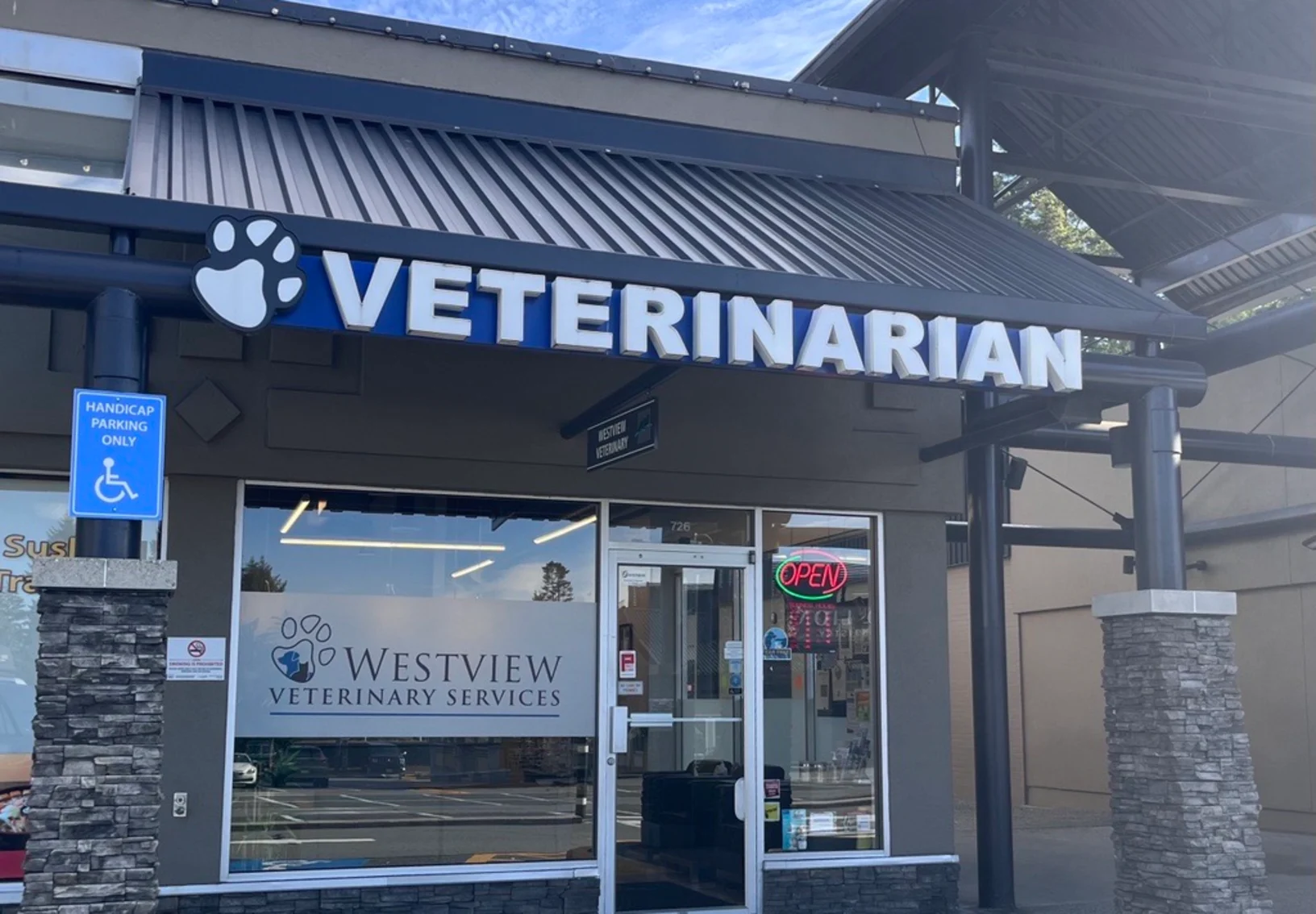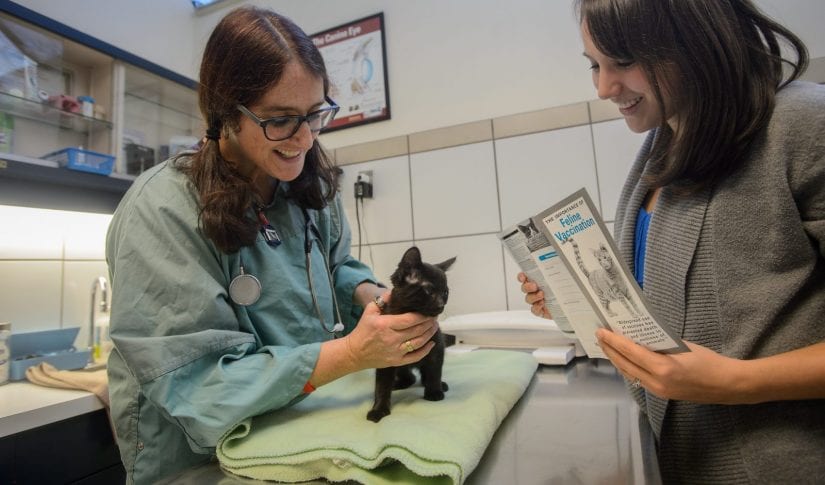Vet services innovations transforming modern animal healthcare
Just How a Veterinary Specialty Hospital Can Heal Your Family pet's Ailments With Advanced Techniques
Veterinary specialty hospitals play a crucial role in dealing with intricate health issues in pet dogs. They use innovative methods and innovations that boost medical diagnosis and treatment. With access to specialized solutions, pet dog owners can find customized options for their animals' conditions. This raises essential inquiries concerning the specific methods used and the advantages they provide. Recognizing these aspects can notably influence a pet's healing journey.
Understanding the Role of Veterinary Specialty Hospitals
Main care vets give necessary services for pet health, veterinary specialty hospitals play a vital function in resolving complicated medical problems that need sophisticated diagnostics and treatment. These facilities are furnished with specialized innovation and seasoned experts who focus on details areas of veterinary medicine, such as cardiology, neurology, and oncology.
Veterinary specialty hospitals help with a collective approach, usually operating in conjunction with an animal's key veterinarian to produce extensive care strategies. They supply accessibility to advanced imaging techniques, such as MRI and CT checks, which are not commonly readily available in typical facilities. Additionally, these hospitals use intensive care systems for seriously ill animals, guaranteeing day-and-night tracking and assistance.
Specialized Providers Used by Veterinary Specialists
Veterinary specialists give important services that boost animal medical care, specifically through advanced analysis imaging strategies. These devices allow exact evaluations of complicated medical problems, bring about more efficient targeted treatment plans. By integrating these specialized solutions, veterinary hospitals can greatly boost person outcomes and general well-being.
Advanced Diagnostic Imaging
Advanced diagnostic imaging plays a crucial function in contemporary vet medication, enabling professionals to get in-depth insights into a pet dog's wellness. Methods such as X-rays, ultrasound, computed tomography (CT), and magnetic vibration imaging (MRI) enable veterinarians to picture internal frameworks without invasive procedures - Learn More. These sophisticated imaging modalities aid in detecting a selection of conditions, from growths and fractures to organ irregularities. By offering clear pictures, they boost the precision of analyses, which is important for effective treatment planning. In addition, specialized vet radiologists translate these pictures, making sure that subtle issues are not forgotten. Inevitably, progressed analysis imaging contributes in supplying substantial care, as it enables early detection and treatment in a pet dog's clinical issues

Targeted Treatment Strategies
Targeted treatment plans are essential for addressing the details health demands of pet dogs, making sure that each animal gets personalized care customized to its one-of-a-kind problem. Veterinary professionals develop these strategies based upon complete evaluations, consisting of advanced diagnostic imaging and research laboratory tests. By concentrating on the individual animal's medical diagnosis, type, age, and lifestyle, specialists can suggest reliable treatments, varying from medicine changes to medical interventions. These plans additionally incorporate follow-up care and keeping an eye on to track the animal's progress and make needed changes. This technique advertises optimal end results and boosts the overall lifestyle for pet dogs encountering complicated health and wellness challenges. Eventually, targeted treatment plans stand for a commitment to providing the greatest criterion of vet care.
Advanced Diagnostic Techniques for Accurate Diagnoses
As family pets deal with significantly intricate health and wellness obstacles, the combination of sophisticated diagnostic techniques has ended up being crucial for attaining accurate medical diagnoses. Veterinary specialty hospitals utilize advanced imaging modern technologies, such as MRI and CT scans, to imagine internal frameworks with impressive clarity. These modalities enable veterinarians to identify problems that may not be visible via conventional methods.
Along with imaging, progressed lab tests, consisting of genetic and biomarker evaluations, provide vital insights right into hidden problems. These examinations enable veterinarians to detect illness at earlier phases, helping with timely treatment. The usage of endoscopy permits for straight visualization of inner body organs, assisting in the medical diagnosis of respiratory system and stomach issues.
Cutting-edge Therapy Options for Facility Problems
Cutting-edge treatment options for complex conditions in pets have become an important focus within veterinary specialty hospitals. Making use of cutting-edge analysis tools, these facilities boost their ability to recognize concerns accurately and tailor proper treatments. Veterinary. In addition, the application of minimally invasive procedures and progressed recovery strategies offers animals a better possibility at recovery with lowered discomfort
Sophisticated Diagnostic Devices
While the landscape of vet medicine proceeds to develop, innovative analysis devices have actually emerged as vital assets for resolving intricate problems in family pets. These advanced technologies, consisting of electronic imaging, ultrasound, and molecular diagnostics, permit vets to get exact information regarding a pet dog's health and wellness status swiftly. As an example, high-resolution imaging techniques can expose intricate details of interior frameworks, making it possible for accurate assessments of injuries or diseases. In addition, genetic testing provides understandings right into hereditary conditions, leading tailored therapy strategies. By leveraging these innovative diagnostic tools, vet specialty hospitals can boost their ability to identify ailments that may have previously gone undiscovered. Eventually, these advancements add to boosted end results and enhance the overall high quality of treatment given to precious family pets.
Minimally Invasive Treatments
Developments in veterinary medication have led the means for minimally intrusive treatments, which provide new therapy alternatives for intricate problems in pet dogs. These cutting-edge methods, such as laparoscopy and endoscopy, permit veterinarians to perform surgeries with smaller sized cuts, minimizing trauma and recuperation time. By using specialized electronic cameras and instruments, veterinarians can diagnose and deal with concerns like lumps, gastrointestinal conditions, and joint troubles with precision - Learn More. This approach lessens discomfort and causes quicker healing, allowing pet dogs to go back to their normal tasks quicker. On top of that, minimally invasive procedures typically lead to much less scarring and a lower threat of problems. As veterinary specialty hospitals embrace these advanced approaches, pet owners can feel extra positive in their pet dogs' treatment and total wellness
Advanced Rehab Techniques
As veterinary medication progresses, advanced rehab techniques are coming to be necessary for managing complicated problems in family pets. These techniques include a variety of ingenious therapy options, including hydrotherapy, laser therapy, and physical treatment. Hydrotherapy uses water resistance to enhance movement and strengthen muscle mass, beneficial for pet dogs recuperating from surgical procedure or injury. Laser therapy advertises recovery by minimizing swelling and discomfort, promoting quicker healing times. Physical treatment uses targeted exercises to enhance toughness and flexibility, tailored to each pet dog's certain needs - Veterinary. Furthermore, techniques like acupuncture and chiropractic Learn More modifications can additionally support rehabilitation by alleviating discomfort and enhancing total health. Veterinary specialty hospitals are significantly integrating these techniques, making sure pets receive thorough care that addresses both physical and emotional recuperation, eventually improving their lifestyle
The Importance of a Multidisciplinary Strategy
A multidisciplinary approach in vet care greatly improves the therapy outcomes for animals, as it incorporates expertise from different specializeds to attend to complex health problems. This collaborative technique includes veterinarians, professionals, service technicians, and support personnel interacting to create detailed therapy plans customized per animal's one-of-a-kind needs. By incorporating knowledge from fields such as surgery, inner medication, oncology, and recovery, veterinarians can determine hidden problems that might or else go unnoticed.
Furthermore, this approach cultivates interaction among team members, ensuring that all facets of a pet's health and wellness are taken into consideration. For instance, a pet recovering from surgical procedure may benefit from input from both a rehab and a specialist expert, leading to a more reliable recuperation process. Inevitably, a multidisciplinary strategy not just improves the top quality of treatment however likewise improves the overall health of pet dogs, providing them with the finest opportunity for an effective healing and lasting health.
Cutting-Edge Innovation in Veterinary Medication

Telemedicine has also become a necessary resource, enabling veterinarians to talk to pet owners from another location, thereby assisting in prompt interventions. Additionally, the assimilation of fabricated intelligence in analyzing clinical information adds to much more efficient therapy strategies tailored to individual needs. Innovative research laboratory equipment permits fast blood analysis and virus discovery, cultivating punctual medical reactions. As vet specialty hospitals continue to integrate these improvements, they not only boost the top quality of treatment however also significantly boost the total wellness of animals.
Success Stories: Real-Life Examples of Pet Dog Recuperation
Various heartwarming success tales illustrate the impressive recuperations of animals dealt with at veterinary specialty hospitals. One such case involved Bella, a Golden Retriever detected with a serious orthopedic problem. After innovative surgical treatment and recovery, Bella was not just able to stroll again but likewise to run joyfully in the park, much to her owners' pleasure.
One more inspiring tale functions Max, a cat with persistent kidney illness. Via specialized nutritional administration and ingenious treatments, Max's problem maintained, enabling him to restore his power and cravings. His proprietors were pleased to see him return to his lively self.
Luna, a Dachshund who suffered a spinal injury, underwent sophisticated treatments, leading to a remarkable recovery. These stories highlight the competence and compassion found in vet specialty hospitals, showcasing their capability to restore health and wellness and joy to precious family pets and their households.
Frequently Asked Concerns
What Should I Anticipate During My Animal's Specialty Appointment?
During a specialized assessment, pet proprietors can expect a detailed exam, thorough clinical history discussions, diagnostic examinations, and customized treatment choices. The vet specialist will provide understandings and suggestions for the pet dog's particular health and wellness demands.
How Can I Find a Veterinary Specialty Hospital Near Me?
To find a vet specialty hospital nearby, one can make use of on the internet search engines, check local directories, or look for referrals from main veterinarians. Additionally, pet proprietor discussion forums can supply useful understandings and experiences regarding nearby facilities.
Are Specialty Services Covered by Animal Insurance Coverage?
Specialty solutions may be covered by pet insurance coverage, however coverage differs by policy. Proprietors should meticulously review their insurance policy plan information and consult their provider to recognize the level of insurance coverage for specialty vet solutions.
For How Long Will My Family pet's Treatment Take?

The period of a family pet's therapy can differ substantially, often ranging from a few days to several weeks. Variables influencing this timeline include the particular problem, treatment type, and the pet's total wellness and action.
What Are the Expenses Linked With Specialty Veterinary Care?
The expenses linked with specialty vet care can differ extensively, usually varying from hundreds to hundreds of dollars. Aspects affecting these costs include the complexity of the problem, required treatments, and analysis procedures essential for reliable treatment.
Veterinary specialty hospitals play a vital duty in attending to complex health problems in family pets. Key care vets supply essential solutions for pet wellness, veterinary specialty hospitals play a vital duty in attending to complicated clinical problems that need sophisticated diagnostics and therapy. Veterinary specialty hospitals facilitate a collective approach, typically functioning in combination with a pet's key vet to develop extensive treatment strategies. Innovative therapy choices for intricate conditions in animals have emerged as an essential emphasis within veterinary specialty hospitals. A multidisciplinary method in veterinary treatment greatly boosts the treatment results for pet dogs, as it integrates knowledge from numerous specializeds to attend to complex health problems.